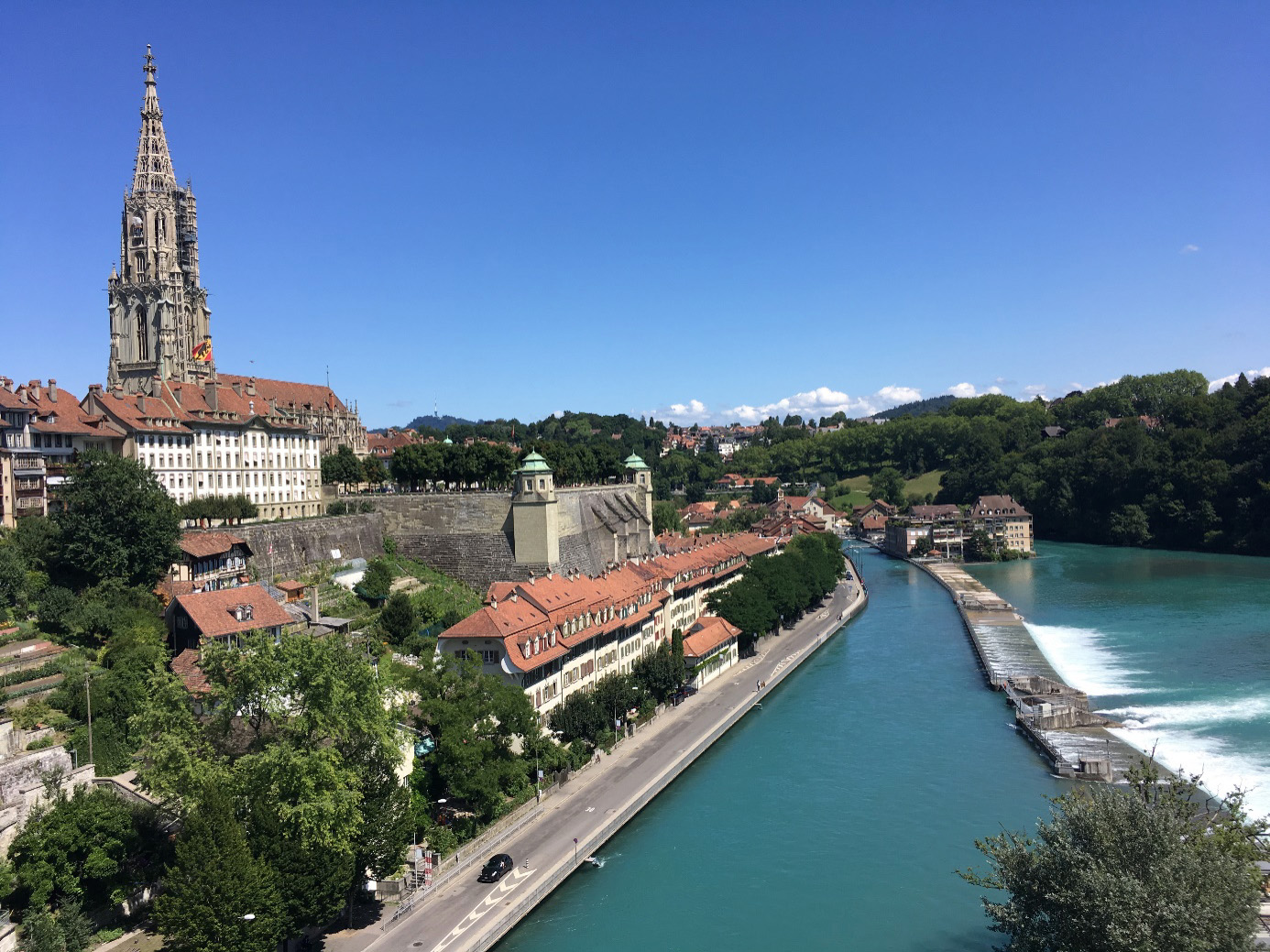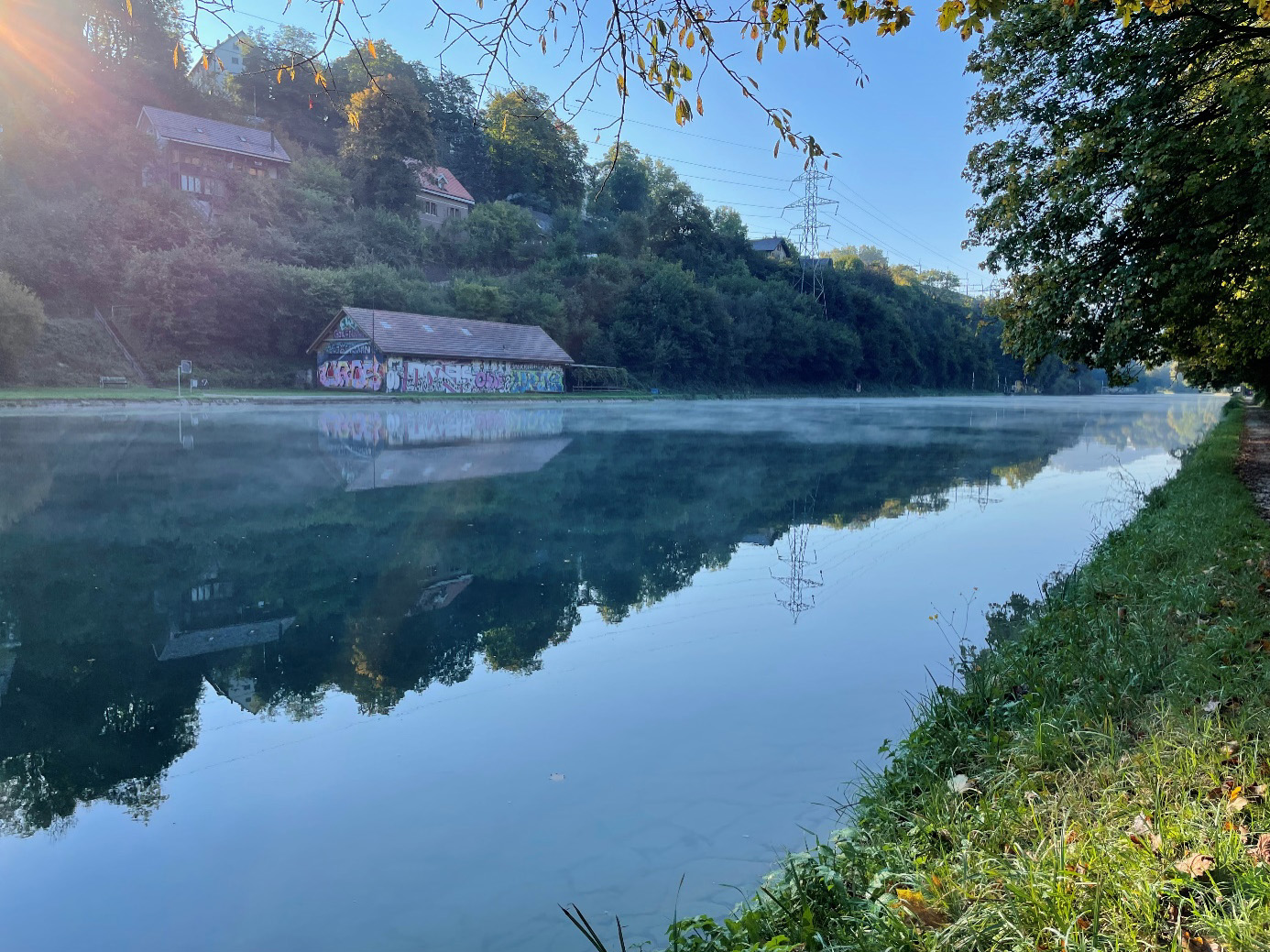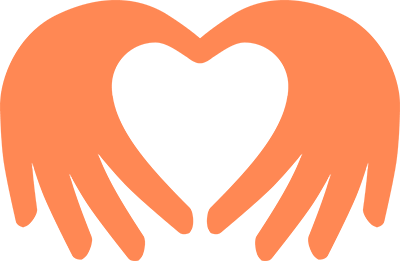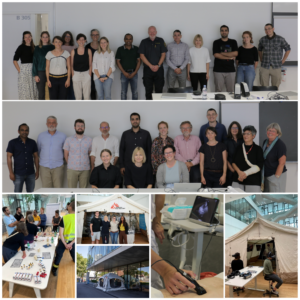Summer School on refugee & migrant health
Scope
When & Where: 09th September – 12th September 2025 – Bern, Switzerland
Participants:
All healthcare professionals (doctors, nurses, public health specialists, humanitarian aid workers, …), as well as students at the end of their master’s degree / PhD, who are already working with refugees / migrants or who intend to do so in the near future. Furthermore all professions (e.g. social workers, project coordinators,…) from various sectors (NGO, governmental, private…), working within healthcare of migrants and refugees, who wish to broaden and deepen their knowledge within the field of public & global health care. We welcome participants from Switzerland and all over the world.
The course this year (2025) is ideal for anyone seeking to improve their knowledge and skills of in the field of sexual and reproductive health, family planning and the impact of migration on women`s health in displaced populations.
Summary:
Given the ongoing migration around the world, it is not surprising that we are increasingly treating patients with a direct or indirect migration background in medical practice as well. This poses special challenges for the health professionals involved.
The Summer School on Refugee and Migrant Health offers a unique opportunity to impart specialist and background knowledge in the field of migration and refugee healthcare and to prepare health professionals for the challenges and special features in the treatment of patients with a migration background. Moreover, we encourage networking and multidisciplinary exchange between peers and experts, in order to bring people together and thus to create synergies and bundle resources. Participants will learn firsthand through lectures and exchange with national and international experts within the field of refugee and migrant healthcare. Additionally, innovative learning scenarios support the transfer of knowledge from theory to practice in the field of clinical work and the management of public health projects. Through challenge-based learning, participants will be able to acquire and use their own skills to face some of the most pressing problems and to find potential solutions by formulating specific action / project plans to overcome challenges in the provision of healthcare to refugees and migrants.
Course outlet 2025:
This three-day course takes place in close collaboration with the Bixby Center for Population, Health and Sustainability at the School of Public Health of the University of California, Berkeley and explores the intersection of sexual and reproductive health (SRH), family planning, and the impact of migration on women’s health in displaced populations. SRH is a fundamental human right and a key component of well-being, yet asylum-seeking, refugee, and undocumented migrant women often face significant barriers to accessing essential services. Challenges such as forced displacement, limited health literacy, structural barriers, and increased exposure to sexual violence contribute to poor health outcomes for both women and their children. Additionally, the course will not only address the challenges faced by women but also explore the perspectives of young adolescents and men regarding SRH and family planning. Through expert-led discussions, case studies and interactive group sessions, participants will gain a deeper understanding of the factors shaping SRH access and utilization among migrant populations. The course also offers opportunities for networking and practical application of knowledge, equipping participants with insights and strategies to better address the unique needs of these vulnerable groups. Additionally, the course introduces the use of PhotoVoice in this context, allowing participants to actively engage with the method through a hands-on project. We thank the Department of Midwifery at the Bern University of Applied Sciences for their conceptual support.
Swiss Symposium on Refugee and Migrant Health:
All participants of the Summer-School can participate in the Symposium.
Topic 2025: Gender, Diversity and Health Equity in the migration context
This year, for the first time, we are offering a platform for participants of the Summer School/Symposium, as well as organizations with relevant projects or interventions and young or senior researchers conducting studies on the topic, to apply for a short presentation of their work at the Symposium. This opportunity aims to enhance the visibility of their work, foster awareness, and provide valuable experience in presenting at a scientific conference. Additionally, it offers a unique chance to engage in discussions with experts and peers, receive feedback, and exchange ideas. A scientific committee led by Dr. med. Karsten Klingberg will carefully review the submitted abstracts and select the presentations. Please find the submission guidelines here.
Submit your abstract to: info@migration-health.com
Innovative Design and Activities:
– Interdisciplinary setting & networking with peers & experts from Switzerland & globally
– Experience exchange: Participants will have the opportunity to present their projects and research studies in the field of SRH in the context of migration at the Swiss Symposium on Refugee and Migrant Health and discuss these with expert trainers and peers
Innovative, interactive learning scenarios:
-> case studies & exercises
-> develop your own photo voice project
-> Insight into different care models in refugee shelters in Europe
-> lectures by national and international experts
– Participation in workshops and program of the Swiss Refugee and Migrant Health Symposium
Overarching learning goals:
- Gain a comprehensive understanding of the unique sexual and reproductive health (SRH) challenges faced by women in the context of migration.
- Explore the specific risks to SRH that women encounter along migration routes and in the host countries.
- Examine the accessibility of SRH services and support systems for women during asylum-seeking and post-resettlement phases.
Learning Outcomes:
After the course you will be able to:
Define sexual and reproductive health (SRH) and evaluate how (forced) displacement affects women’s reproductive health and rights.
Apply key concepts such as diversity, social inequality, vulnerability, and social determinants of health to understand their impact on the SRH of migrant women.
Critically analyze barriers and facilitators influencing access to SRH services and identify strategies to improve healthcare equity.
Recognize and assess the specific risks migrant women encounter in conflict zones, during transit, and after resettlement, and their impact on health outcomes.
Understand the significance of health literacy and cultural competency in shaping SRH access and apply these concepts to enhance support for migrant women.
Program
Responsible for the concept and program of the summer school: Dr. Anne Jachmann
Program may be subject to change (current version will always be displayed here):
You can find the detailed plan here.
9th September – 12th of September 2025 (09:00 – 17:00)
Tuesday – Thursday mornings: Training & Lectures
Tuesday – Thursday afternoons: Exercises & Lectures
Friday – Swiss Symposium on refugee & migrant health
Speakers (list is subject to change):
– Prof. Aristomenis Exadaktylos, Emergency Department, University Hospital Bern (Inselspital)
– Prof. Ndola Prata, Fred H. Bixby, Jr. Endowed Chair and Faculty Director, Bixby Center for Population, Health and Sustainability, School of Public Health, University of California, Berkeley; Co-Director, University of California Global Health Institute (UCGHI)
– Ass. Prof. Mariano Salazar Torres, Global and Sexual Health research group, Department of Global Public Health, Karolinska Institutet, Sweden
– Dr. Marianne Cense, Senior researcher at Rutgers, Dutch expert centre on reproductive and sexual health and rights, Utrecht, Netherlands
– Sell Teclemariam, Peer researcher at Rutgers, Dutch expert centre on reproductive and sexual health and rights, Utrecht, Netherlands, intercultural mediator and residential supervisor for unaccompanied minors)
– Dr. Silvia Loi, Head of the ERC funded Research Group on Migration and Health Inequalities, Max Planck Institute for Demographic Research, Rostock, Germany; Deputy Director of the Max Planck – University of Helsinki Center for Social Inequalities in Population Health
– Prof. Jasmine Abdulcadir, Head of the Gynaeco-Obstetrical Emergency Unit, Department of Women, Children and Adolescents, University Hospital of Geneva, Faculty of Medicine, University of Geneva (UNIGE)
– Bhavya Joshi, DrPH(c) and Fellow at the Bixby Center for Population, Health and Sustainability, School of Public Health, University of California, Berkeley
– Nelly Staderini, Medical leader Women and Children’s Health Unit, Sexual & Reproductive Health/Sexual violence Advisor, Medical Department, Médecins Sans Frontières, Geneva
– Dr. Mia Kolak, Midwife at MSF Greece
– Isotta Rossoni, Criminologist specialised in sexual violence and SRHR in migration; Co-founder @ Bridges2Health&Rights
– Dr. Sylvie Schuster, Head of the Centre for Sexual Health, Department of Obstetrics and Gynecology, University Hospital Bern (Inselspital)
– Silvana Larrea Schiavon, DrPH(c) and Fellow at the School of Public Health, University of California, Berkeley
– Milena Wegelin, Msc. Social Anthropology, research associate, Bern University of Applied Sciences, School of Health Professions, Maternal and Perinatal Health
– Laura Pasquero, Course Director, Addressing Sexual Violence in Conflict and Emergency Settings, Geneva Centre of Humanitarian Studies (GCHS) at the University of Geneva
– Lynn Huber, Midwife at Stadtspital Triemli, Co-Founder of ONEDU
– Lisa Philippo, Access to Health Officer at the European Sex Workers‘ Rights Alliance (ESWA). Supervisory Board Member for the Aidsfonds and Secretary of the Board at CHOICE for Youth and Sexuality
– Dr. Karsten Klingberg, Emergency Department, University Hospital Bern (Inselspital)
– Maria Laura Chacón Roldán, MD, DTMIH, MSc Tropical medicine and international health LSHTM. Medical coordinator Médecins sans Frontières.
Registration
Apply now if you are not to miss this great opportunity.
You will be notified as soon as possible if your application has been successful. Your registration is completed and valid only once full payment has been received.
Price:
Regular Fee:
– CHF 475 1st week (3 days + Symposium) in person
– CHF 250 1st week (3 days) online (CHF 100 for persons from low- and middle income countries)
– CHF 150 per day in person / CHF 90 per day online
Included in the price:
Fee for course (summer school, workshops, Symposium) and course material, lunches (sandwich) & coffee breaks. The price does not include travel costs, accommodation or insurance.
Cancellation Policy:
For participants who have applied and been accepted to the course, but who subsequently withdraw:
Cancellations up until 15th of August 2025: We will refund the fee paid minus CHF 100 to cover administration and banking fees.
For cancellations after 15th of August 2025, there will be no refund.
Selection Criteria:
The number of participants is limited to 30. We aim to have a lively, international and interdisciplinary group of participants with a balanced number of different professions. Since this is an interactive program, we encourage people to participate in the Summer School who enjoy to engage with peers and experts.
Scholarship:
General information
Who may apply?
All healthcare professionals (doctors, nurses, public health specialists, humanitarian aid workers, …), as well as students at the end of their master’s degree / PhD, who are already working with refugees / migrants or who intend to do so in the near future. Furthermore all professions (e.g. social workers, project coordinators,…) from various sectors (NGO, governmental, private…), working within healthcare of migrants and refugees, who wish to broaden and deepen their knowledge within the field of public & global health care. We welcome participants from Switzerland and all over the world.
Level of English:
Given the interactive design of the course, an adequate level of English is expected. We do not require an English language certificate, but every participant should be able to follow the lectures, read scientific articles in English, to actively participate in the group work and discussions and to give a presentation.
ECTS and Continuing Education Credits:
By participating in the summer school, you can receive the following continuing education credits & ECTS (amount for the complete 1st week, correspondingly lower share for fewer days):
SGNOR (Swiss Professional Society for Emergency and Rescue Medicine): 32 Credits
SSAPM (Swiss Society for Anaesthesiology and Perioperative Medicine): 13 Credits
SGC (Swiss Professional Society for Surgery): 8 Credits
ECTS (University of Bern): 2
Acknowledgement of the ECTS points in the study programs at home institutions other than the University of Bern is the responsibility of the participants.
Accommodation:
There are several B&B, hostels, student accommodation and hotels near the Summer School venues. Upon request, we can assist in booking an accommodation.
Social/ Leisure time activities:
There are plenty of activities to do in Bern and its surroundings, including swimming in the Aare river, taking a hike in the alps or exploring Bern’s old city centre.



Arrival:
Bern is easily accessible by bus or train and has its own airport. Furthermore, there are direct trains from Basel central train station (15min by bus from Basel Airport) or Zurich and Geneva Airport to Bern’s central train station.
Insurance:
Please make sure you have a valid health and accident insurance which will cover your stay in Switzerland.
Visa:
Participants are responsible for checking whether they need a visa for Switzerland.
Public Transportation in Bern:
You can easily get around the city by foot or rent a bicycle. There are also buses and tram, which connect the whole city. Please explore options: https://www.bern.com/en/detail/public-transport
For questions on the content or organisation of the summer school intensive course please contact: info@migration-health.com

